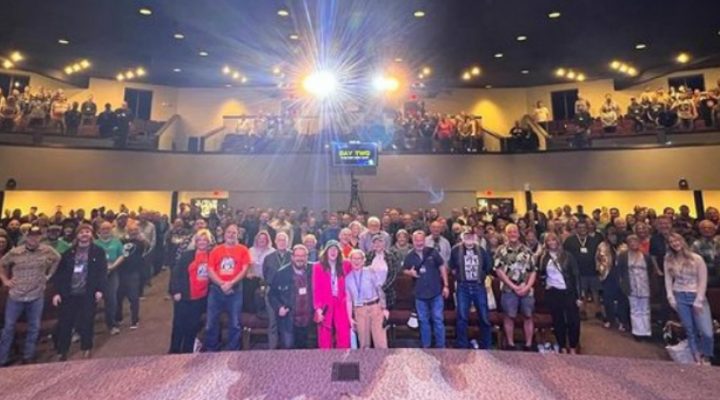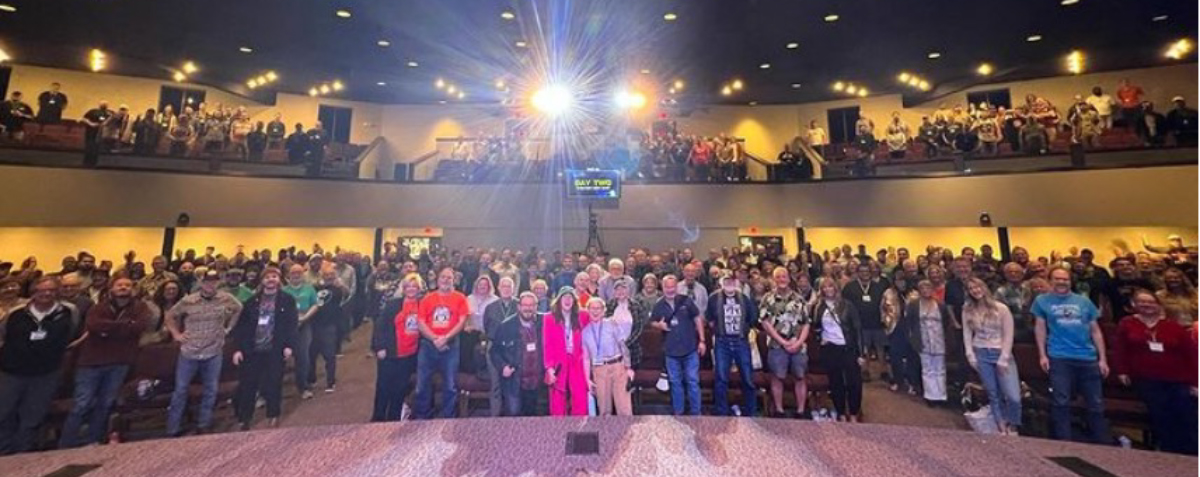Tell somebody you’re going to Theology Beer Camp and you will be met with either a delighted giggle or a wrinkled brow.
In the churches of my youth, the words “theology” and “beer” never occupied the same sentence — “for what fellowship hath righteousness with unrighteousness?”
The Theology Beer Camp I attended in Springfield, Mo., a few days ago was grounded in the God-is-love hypothesis. No matter who you are, what you are or where you are, God loves you. That was the message.
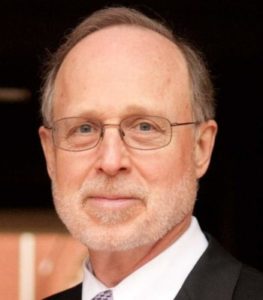
Alan Bean
Queer or straight; male, female or nonbinary; young or old; understated or flamboyant — God loves you passionately. If you have been damaged by people who limit and qualify the love of God, theology beer camp is a safe place. That’s the basic idea.
Checking in
When you arrive at Theology Beer Camp, you get a nametag, a lanyard and a beer glass that can be refilled as often as you like. If you don’t like beer, there’s wine or a variety of non-alcoholic options.
I couldn’t help thinking of Martin Luther’s famous remark: “While I slept, or drank Wittenberg beer with my friends Philip and Amsdorf, the Word so greatly weakened the papacy that no price or emperor ever inflicted such losses upon it.”
Luther taught that while beer is good, too much beer is bad. If anyone overindulged during the three days of Theology Beer Camp, it wasn’t apparent to me. Beer served as more of a semi-transgressive branding for the event. It also worked as a filter: those offended by the marriage supper of beer and theology were guaranteed to keep their distance. Theology Beer Camp is supposed to be a safe space.
For ‘theology nerds’
The event was designed with “theology nerds” in mind (people who read serious theology and love to get hopelessly tangled in the weeds). It’s also for people who have been traumatized by mean religion. It’s for Jesus-loving LGBTQ folk, especially those who have been abused and shunned by the church and need a place of sanctuary. There were lots of pastors and ex-pastors in the mix, most of whom had abandoned their evangelical roots. Everyone had a story and showed up with more questions than answers.
“Everyone had a story and showed up with more questions than answers.”
Most of the sessions featured the hosts of religiously themed podcasts (God-pods) in conversation with religious scholars like John Dominic Crossan, Thomas Jay Oord, Reggie Williams and Grace Ji-Sun Kim. The theme was “after deconstruction.” That is, when you have moved past evangelicalism and patriarchy and theological certainty, what comes next?
The event also was enlivened by a hearty contingent of Star Wars and Lord of the Rings aficionados. They did their thing (whatever it was) in a galaxy far, far away from the rest of us.
Tripp Fuller and Frank Tupper
The driving force behind Theology Beer Camp is Tripp Fuller, an ordained Baptist minister who graduated from Wake Forest University Divinity School (2004) and Claremont Graduate University (2012). A theology nerd of the first order, Tripp is also one of the Star Wars/Lord of the Rings bunch (which partially explains why he delivered his welcoming lecture in a Wookiee outfit). He is best known as host of a “Homebrewed Christianity” podcast.
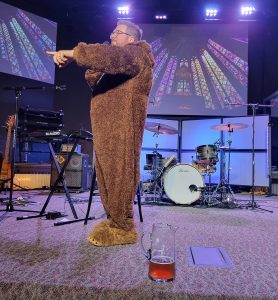
Tripp Fuller
As a young man fresh from university, Tripp’s theological world was rearranged by E. Frank Tupper’s A Scandalous Providence: The Jesus Story of the Compassion of God. Tripp enrolled at Wake Forest because that’s where Frank was teaching.
Tupper was my theology professor when I studied at Southern Baptist Theological Seminary from 1975 to 1978 (M.Div). In 1983, Frank’s wife, Betty, died after a long and painful war with cancer and, when I returned to Southern Seminary for doctoral work in 1989, Frank was still mired in sorrow. He wrote A Scandalous Providence to work through his grief.
In what still rates as the most downloaded episode of “Homebrewed Christianity,” Tupper sat down with Tripp to talk about his book.
“Betty Tupper’s experience of suffering with cancer and dying, and the enormous impact that it had on our family, gave me the courage to say, ‘I’m going to write and interpret providence in a way that is consistent with my understanding and my faith, and I’m going to accept the challenges and opposition that I expect to experience,’” the professor explained.
Tupper had good reason to anticipate trouble. Rejecting the “monarchal” idea that an all-powerful God is directly or indirectly responsible for everything that happens in the world, Tupper asserted the tragedy and trauma we encounter in life cannot be ascribed to God. God does everything that can be done, Tupper said, but God “acts as one agent among other agents in the entangling cooperation of history.”
Tupper concluded God did all God could do to save Jesus (and Betty Tupper), but it wasn’t enough.
A Scandalous Providence was published in 1995, a year after Southern Seminary President Al Mohler handed me my Ph.D. diploma. For most Southern Baptists (certainly for Al Mohler), the suggestion that God lacks unfettered agency is the worst kind of heresy. Tupper was handed an ultimatum: resign from the faculty or face a heresy trial.
Most of the men and women who came to Theology Beer Camp could identify with Tupper’s dilemma. In one way or another, they had been there. The motto of Fuller’s “Homebrewed Christianity” is “theology that doesn’t suck.”
Theology sucks, in this view, whenever God’s greatness trumps God’s goodness. Forced to choose, the Theology Beer Camp crowd will stick with a good God and live with the consequences.
A dance of defiance
In a recent sermon, Ryon Price, pastor of Fort Worth’s Broadway Baptist Church, explained why Grady Nutt abandoned Wayland College in Plainview, Texas, for Baylor University in 1955.
“I went to Baylor because I wanted to dance,” Nutt explained. “You couldn’t dance at Baylor either, but you could want to.”
“Theology Beer Camp is a dance of defiance in which all the hard questions preachers generally avoid are spilled out on the floor in an unseemly heap.”
Theology Beer Camp is a dance of defiance in which all the hard questions preachers generally avoid are spilled out on the floor in an unseemly heap. Frank Tupper wanted to free serious, life-and-death theology from its academic prison and loose it upon the world. Theology Beer Camp is the fulfillment of his deepest desire.
It is challenging to incorporate worship in an environment brimming with spiritual trauma. Tripp told me a poll conducted at the 2022 Beer Camp revealed 40% of attendees had problems identifying as “Christian” because the word had been co-opted by fundamentalists and religious nationalists. Most traditional hymns are problematic in such a setting, and Hillsong-type praise songs are triggering for almost everyone.
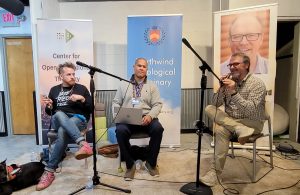
Kevin Garcia, Adam Clark, and Dan Stiver discussing “spirituality after deconstruction.”
As a consequence, event organizers invited several talented musicians, many of them refugees from the Christian contemporary world, to perform. A lot of people who came to Theology Beer Camp were intimately connected to the people on stage.
Derek Webb, one of the performers with a loyal coterie of fans in the audience, was a Christian contemporary megastar in the early days of his career when he won three Dove Awards performing with a group called Caedmon’s Call. In the course of a painful and public divorce and a gradual process of deconstruction, Webb lost most of his audience. He now plays small venues and house concerts, writing songs for his small-but-passionate fan base. On his latest album, The Jesus Hypothesis, Webb contrasts a religion rooted in certainty with a faith that makes the most of the ambiguity and lives with the consequences.
Christian drag performer Flamy Grant took Theology Beer Camp by storm. Grant and Webb recently were attacked by Sean Feucht, a CCM artist and MAGA personality famous for organizing maskless public events in the heart of the COVID-19 pandemic. Grant and Webb responded by showing up at this year’s Dove Awards in drag. Flamy’s song “Good News” from the album Bible Belt Baby captured the prevailing theme of the music performed in Springfield:
It’s a good day, nothing’s gonna keep me
Out of the light, I’m not gonna hide.
I’ve got a heart in the right place
Covered in the good graces of
An endless love.
You can hear Flamy Grant and Derek Webb singing “Good News” here.
‘I know a place’
Theology Beer Camp closed with a Communion service that moved many to tears. Kevin Garcia, a queer “spiritual recovery coach,” called all the LGBTQ folk to the front to serve as officiants. As we streamed forward to receive the bread and wine, Flamy Grant performed “I Know a Place,” a MUNA song that has emerged as an unofficial queer anthem:
I can tell when you get nervous.
You think being yourself means being unworthy.
And it’s hard to love with a heart that’s hurting.
But if you want to go out dancing
I know a place
I know a place we can go
Where everyone’s gonna lay down their weapons.
Strangely, the song matched the occasion with graceful precision. It was a high moment of holy catharsis. God was in the room and didn’t appear to be the slightest bit embarrassed. Maybe God needs a safe space too.
Alan Bean serves as executive director of Friends of Justice. He is a member of Broadway Baptist Church in Fort Worth, Texas.

